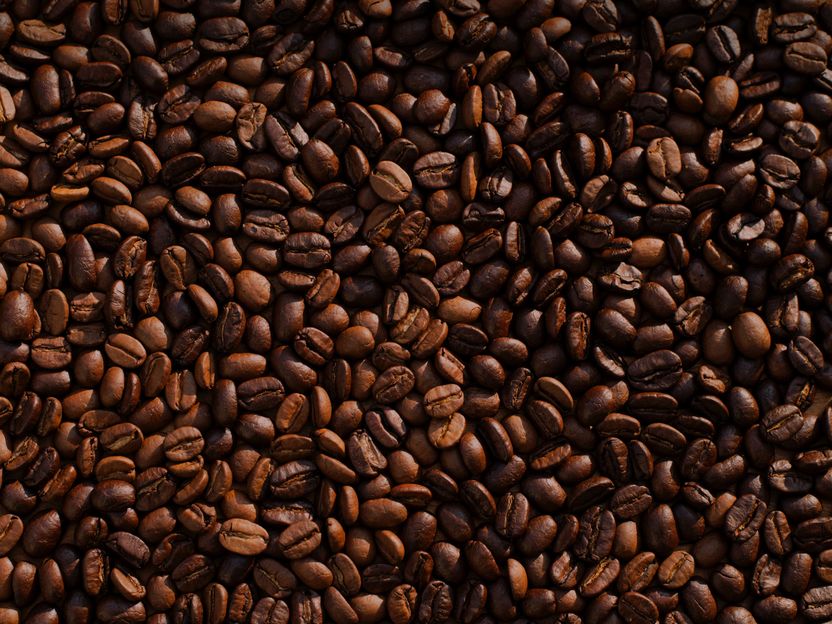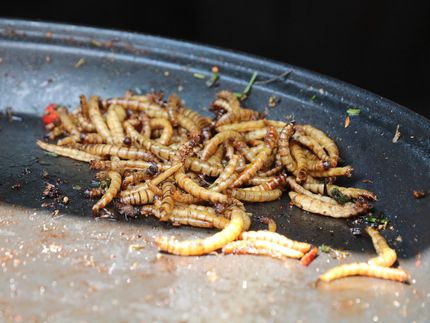OPSON VIII: Authorities investigate coffee fraud
In individual cases, Arabica beans were replaced by cheaper Robustabohnen beans.
Advertisement
In this year's Operation OPSON VIII, coordinated by Europol and INTERPOL, thirteen European States have joined forces to jointly pursue possible coffee fraud cases. In Germany, Portugal and Switzerland, nine cases of cheaper Robustabohnen were found in Arabica coffee. This was announced today by the Federal Office of consumer protection and food safety (BVL) in Berlin, which coordinated the priority action. In Germany, in addition to the food inspection authorities of the federal states, customs and the Federal Criminal Police Office also participated in the operation.

Photo by Mike Kenneally on Unsplash
During the six-week core phase of the operation, from early January to mid-February, the food control authorities in Germany examined over 1.5 tonnes of roasted coffee and roasted and ground coffee. In the 134 controls, the coffee declared as 100 % Arabica was tested for the presence of Robustabohnen. Customs supported the operation by evaluating and providing import data on coffee.
The food control authorities identified three misleading cases (approximately 2 % of the samples tested). The Robusta contents determined ranged from approx. 7 % to 100 %. The Arabica plant (highland coffee) is more demanding to grow than the more resistant Robusta plant. The processing of green coffee also differs. Arabica beans therefore achieve higher prices than Robustabohnen. If the beans are still visually distinguishable, it becomes difficult to determine them precisely once the green coffee has been roasted and ground. The samples were tested for the content of 16-O-methylcafestol to detect the presence of Robusta coffee bean. This ingredient is only contained in coffee beans of the Robusta species.
Investigations continue
In all three cases the entry was made in the roasting plant. There are no indications of the involvement of other food business operators or of adulterated raw materials. The food control investigations are still ongoing in some cases. One case has already been referred to the prosecution. Cases of falsification have also been detected in Switzerland and Portugal. In six samples Arabica beans were replaced by Robustabohnen. Once all the results are available, an overall picture of the extent and structures of coffee fraud will be drawn up at European level. Further follow-up action may be taken, including beyond the end of Operation OPSON VIII.
laboratory cooperation
This year's priority campaign was the first time that there was laboratory cooperation at national and European level. This strengthens cooperation between authorities, also in the field of analytics. Analytical issues play a key role in the effective fight against food fraud. The Karlsruhe Chemical and Veterinary Investigation Office (CVUA) had laboratory capacities available for determining the 16-O-methylcafestol content using NMR analysis (nuclear magnetic resonance spectroscopy). These capacities have been used not only by the German authorities but also by all participating States in the priority action. In addition, initiated by the BVL, a further laboratory cooperation for the "determination of origin" has resulted. The analysis of the origin of coffee is difficult. There is a lack of unique reference material. Two German laboratory equipment manufacturers and three German investigation offices therefore analysed 106 samples whose origin was spread over several continents and numerous states. The results of the determination of origin are still pending. Their main purpose is to build up a sample pool and thus establish an analytical method.
In addition, a well-known coffee company supported the Europe-wide focus campaign by providing authentic samples of coffee samples for an authenticity comparison. This was carried out at the CVUA Karlsruhe, whereby no anomalies were found.
Further key actions
In addition to the focus action on coffee, which was coordinated by BVL, there were two other focus actions at OPSON for the first time. The European Commission coordinated a priority action to combat organic food fraud involving 16 European countries. Several cases have been identified where conventional products have been declared as organic products. The UK and nine other countries have followed offers of fat burner products containing the ingredient DNP (2,4-dinitrophenol). The products have been advertised as effective weight loss aids, but the consumption of DNP can have fatal consequences.
Participants in OPSON VIII
Europol and INTERPOL have been taking coordinated action against food fraud since 2011 with the worldwide OPSON campaign. The overall objective of joint OPSON priority operations is to establish and strengthen inter-agency cooperation between food control and consumer protection authorities and law enforcement authorities and customs at both national and international level. A total of 77 countries worldwide have participated in OPSON VIII with various research objectives.
The BVL coordinated the priority action on coffee. In addition to the initiators of cooperation at European level - Germany, Switzerland and Denmark - Belgium, Croatia, Liechtenstein, Lithuania, Norway, Austria, Portugal, Great Britain (Scotland), Slovenia and Cyprus also participated in the action.
The German participation in the current operation OPSON VIII was also coordinated by BVL. In Germany, the food monitoring authorities from Bavaria, Berlin, Hesse, Mecklenburg-Western Pomerania and North Rhine-Westphalia as well as the Federal Criminal Police Office (BKA) were actively involved. Schleswig-Holstein and the Friedrich-Loeffler-Institute (FLI) participated as observers. Baden-Württemberg participated through the Chemical and Veterinary Investigation Office (CVUA) in Karlsruhe as part of a laboratory cooperation.
Note: This article has been translated using a computer system without human intervention. LUMITOS offers these automatic translations to present a wider range of current news. Since this article has been translated with automatic translation, it is possible that it contains errors in vocabulary, syntax or grammar. The original article in German can be found here.
Other news from the department business & finance
Most read news
More news from our other portals
See the theme worlds for related content
Topic world Food safety
Food safety is at the heart of the food and beverage industry. It ensures that the food we eat every day is not only nutritious, but also free of harmful contaminants. From field to plate, the industry monitors and regulates every step of the process with strict quality controls, advanced testing methods and continuous research.

Topic world Food safety
Food safety is at the heart of the food and beverage industry. It ensures that the food we eat every day is not only nutritious, but also free of harmful contaminants. From field to plate, the industry monitors and regulates every step of the process with strict quality controls, advanced testing methods and continuous research.
































































